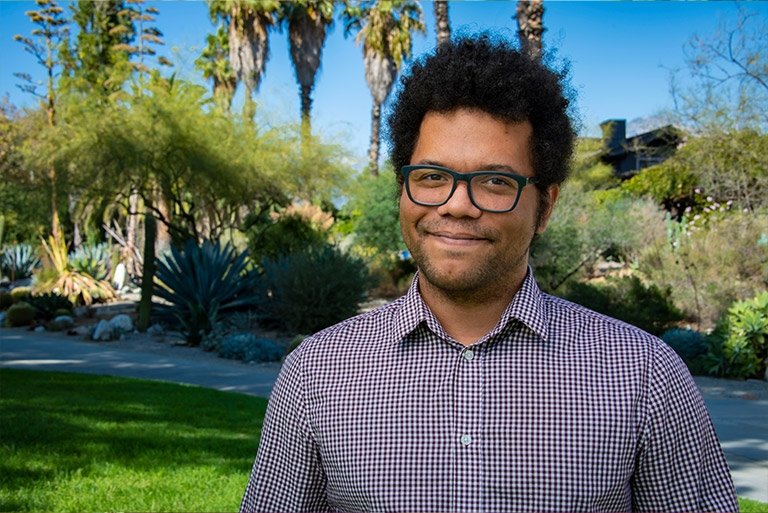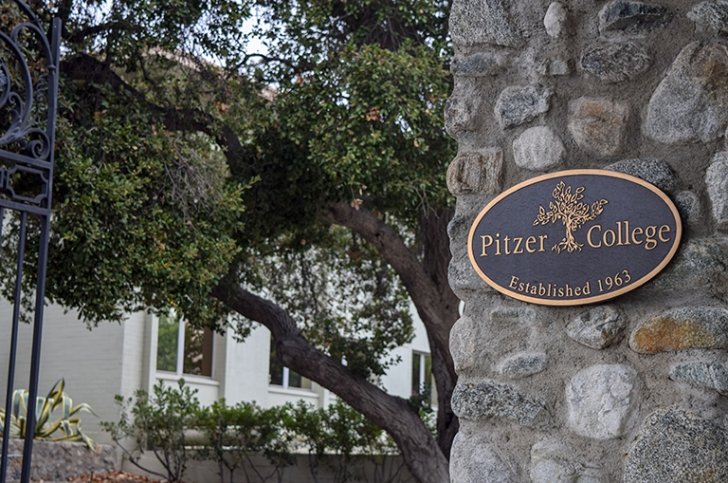Black History Month Spotlight: Professor Darin Brown
Meet Assistant Professor of Psychology Darin R. Brown (he/him), who has taught at Pitzer College since 2019. His recent courses include Neurobiology of Emotion, Introduction to MATLAB, and Foundations of Data Science.

Brown earned his PhD from University of New Mexico and MA and BA from California State University, Los Angeles.
How do your culture and family background influence your work?
My training is in the cognitive neurosciences, where we care about neurons and cells in the brain. As I got older, I realized that these brains that I studied belong to people. And those phenomena that we examine are based on where the owner of that brain grew up and their history. I’m grateful for my culture because it allows me to give some insight that my field terribly lacks. On top of that, I’m adopted. I was raised in a white family. I had to seek where I belonged and who I was on my own. Those things have influenced how I conduct my research and the classes I teach.
How did you get to where you are now?
I went to Claremont High School, but I in no way matched the typical student or resident. That was challenging. I bounced around in college and jobs. I worked in a restaurant in Claremont for 13 years. I decided to take college seriously later in life because my heart got broken. Luckily, I fell in love with something else: psychology. I realized I was good at school. It was a lot of zigs and zags. Getting older allowed me to see how those zigs and zags make a straight line—when you squint at them.
What does this heritage month mean to you?
Given my background, I was a little late to the party. It’s easy to be cynical (as I was) regarding Black History Month. It’s the shortest month of the year. It’s a time when department stores and news stations highlight their interest in Blackness. As I’ve gotten older, I’ve been able to find my language to transform my anger into action and my cynicism into celebration.
I love this moment where I reflect on my and other people’s contributions to my community and how I’ve become more in touch and in love with my Blackness. Now that I’m a parent, I not only get to reflect on my own Blackness but on my daughter’s.
What drew you to Pitzer?
I worked at Viva Madrid for 13 years. You got to know the different colleges through how their students would treat the wait staff. We’d always argue over who could take the Pitzer tables because they were fun and interesting to talk to. I remember students asked me my opinions on things, which never happened before.
As I got through my graduate program, I started realizing the need for community engagement and social awareness, especially in my field. A lot of colleges tack on social justice. That’s not Pitzer; the foundation was social justice and community engagement. I also got to come home to Southern California and be on the other side of the curtain at the College!
To know more about Brown's research, check out his Reward, Affect, and Decision-Making Laboratory, where he and Pitzer students investigate the neural correlates of reward processing, emotional states, and how these processes influence learning and decision-making.
About Pitzer College
Founded in 1963 as a member of The Claremont Colleges, Pitzer College is an academically rigorous, inclusive liberal arts institution committed to open inquiry, community engagement, and educational access for all students. Rooted in a commitment to social justice, environmental sustainability, and meaningful community engagement, Pitzer empowers students to think boldly, act with purpose, and contribute to a more thoughtful and compassionate world.
News Information
Published
Author
Bridgette Ramirez


